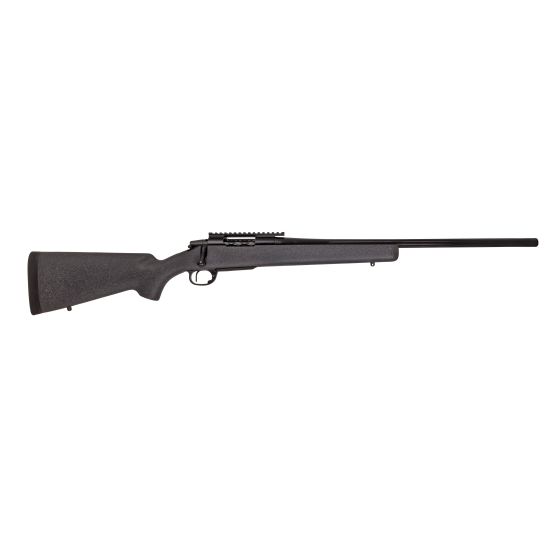
Precision rifle shooting, especially at long ranges, is a skill that combines art and science. It demands not only skill and experience but also the right equipment. In the world of long-range shooting, the choice of rifle is paramount. Here we will discuss about the top considerations to keep in mind when selecting a precision rifle for long-range shooting.
- Purpose and Range
Before diving into specifics, it’s essential to understand the purpose of the rifle. Are you targeting competitions, hunting, or casual shooting? The intended use dictates many of the subsequent choices. Also, define “long range” for your purposes. Distances can vary significantly, from 300 yards to 1000 yards or more, influencing the rifle’s required capabilities.
- Caliber
The caliber of the rifle is a crucial consideration. Popular long-range calibers include 6.5 Creedmoor, .308 Winchester, and .300 Winchester Magnum. Each caliber offers a balance of recoil, ballistics, and availability of ammunition. For instance, 6.5 Creedmoor is renowned for its flat trajectory and wind resistance, making it a favorite among long-range shooters.
- Barrel Length and Quality
The barrel is the heart of a precision rifle. Longer barrels generally provide more velocity and stability to the bullet, aiding in long-range accuracy. However, they also add weight and can be unwieldy. Quality is non-negotiable – look for barrels with high-grade steel and precise rifling. Also, consider the twist rate, which should match the bullet weight you plan to use.
- Stock
The stock of the rifle should provide a comfortable and stable platform. Adjustable stocks are preferable as they can be tailored to the shooter’s physique and shooting style. Materials range from traditional wood to modern synthetics and composites, each with its advantages in terms of weight, durability, and environmental resistance.
- Trigger
A good trigger is critical for precision shooting. It should be crisp and consistent, with no creep or overtravel. Many precision rifles come with adjustable triggers, allowing you to set the pull weight to your preference, which can significantly enhance accuracy.
- Optics
Optics are as important as the rifle itself. A high-quality scope with suitable magnification for the range you intend to shoot, clear glass, and reliable adjustments for windage and elevation is essential. Features like first or second focal plane reticles and mil-dot markings can be crucial for long-range shooting.
- Action Type
The type of action – bolt-action, semi-automatic, etc. – affects the rifle’s performance and user experience. Bolt-action rifles, such as the iconic Remington 700, are widely favored for their reliability and accuracy at long ranges. However, semi-automatics offer quicker follow-up shots, which might be beneficial in some scenarios.
- Weight and Balance
The weight and balance of the rifle affect shooter fatigue and steadiness. Heavier rifles offer more stability but can be tiring to carry during hunting. Lighter models are easier to handle but might be more susceptible to movement and recoil.
- Recoil Management
Managing recoil is vital for accuracy and comfort, especially over extended shooting sessions. The rifle’s design, weight, and caliber contribute to recoil. Additionally, accessories like muzzle brakes or recoil pads can help in managing recoil effectively.
- Accessorization
Consider the rifle’s compatibility with accessories. This includes not only scopes but also bipods, slings, and rail systems for mounting various gadgets. A rifle with good accessory compatibility allows for greater customization and adaptability.
- Budget
Budget is a practical consideration. Precision rifles and their accessories can range from moderately priced to very expensive. Balance your budget with the features you need. Remember, investing in a good quality rifle and optics often pays off in the long run in terms of performance and durability.
- Brand and Warranty
Finally, consider the brand and the warranty. Renowned brands with good track records in precision rifles are generally preferable. A strong warranty and customer service can be invaluable, especially if you encounter any issues with your rifle.
Conclusion:
Selecting a precision rifle for long-range shooting is a nuanced process that involves balancing various factors, from the rifle’s technical specifications to personal preferences and practical considerations like budget. By carefully considering each of these aspects, you can choose a rifle that not only fits your needs but also enhances your long-range shooting experience. Remember, practice and skill development are just as important as the equipment itself in the world of long-range precision shooting.